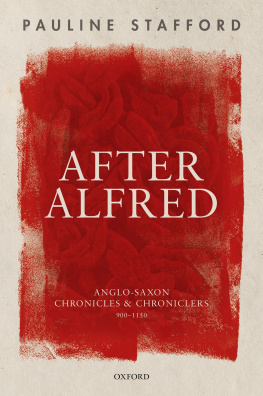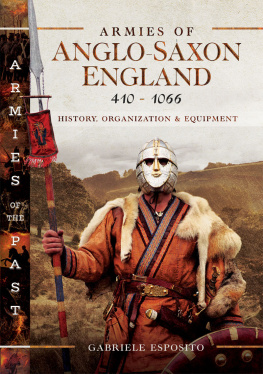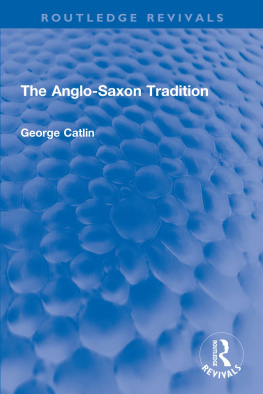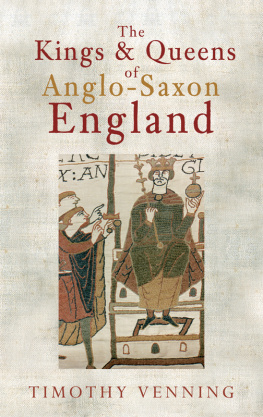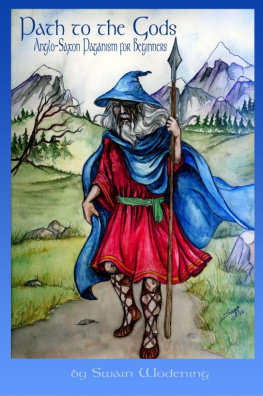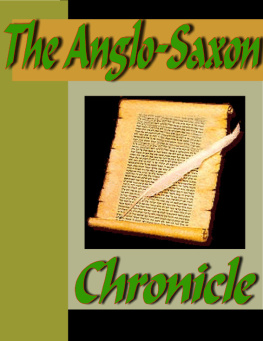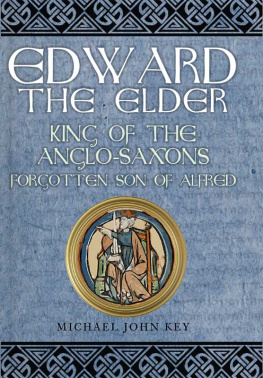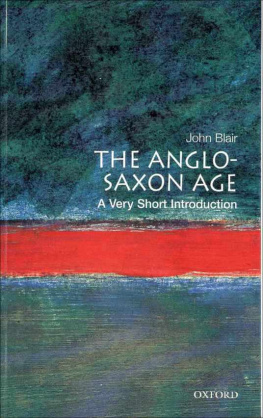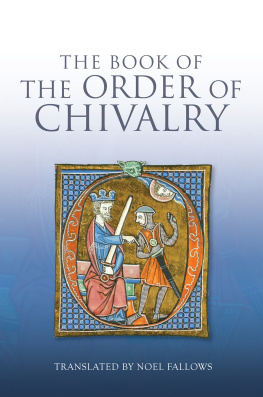Stafford Pauline - After Alfred: Anglo-Saxon Chronicles and Chroniclers, 900-1150
Here you can read online Stafford Pauline - After Alfred: Anglo-Saxon Chronicles and Chroniclers, 900-1150 full text of the book (entire story) in english for free. Download pdf and epub, get meaning, cover and reviews about this ebook. year: 2020, publisher: Oxford University Press USA - OSO, genre: Religion. Description of the work, (preface) as well as reviews are available. Best literature library LitArk.com created for fans of good reading and offers a wide selection of genres:
Romance novel
Science fiction
Adventure
Detective
Science
History
Home and family
Prose
Art
Politics
Computer
Non-fiction
Religion
Business
Children
Humor
Choose a favorite category and find really read worthwhile books. Enjoy immersion in the world of imagination, feel the emotions of the characters or learn something new for yourself, make an fascinating discovery.
- Book:After Alfred: Anglo-Saxon Chronicles and Chroniclers, 900-1150
- Author:
- Publisher:Oxford University Press USA - OSO
- Genre:
- Year:2020
- Rating:4 / 5
- Favourites:Add to favourites
- Your mark:
- 80
- 1
- 2
- 3
- 4
- 5
After Alfred: Anglo-Saxon Chronicles and Chroniclers, 900-1150: summary, description and annotation
We offer to read an annotation, description, summary or preface (depends on what the author of the book "After Alfred: Anglo-Saxon Chronicles and Chroniclers, 900-1150" wrote himself). If you haven't found the necessary information about the book — write in the comments, we will try to find it.
After Alfred: Anglo-Saxon Chronicles and Chroniclers, 900-1150 — read online for free the complete book (whole text) full work
Below is the text of the book, divided by pages. System saving the place of the last page read, allows you to conveniently read the book "After Alfred: Anglo-Saxon Chronicles and Chroniclers, 900-1150" online for free, without having to search again every time where you left off. Put a bookmark, and you can go to the page where you finished reading at any time.
Font size:
Interval:
Bookmark:


Great Clarendon Street, Oxford, OX2 6DP, United Kingdom
Oxford University Press is a department of the University of Oxford. It furthers the Universitys objective of excellence in research, scholarship, and education by publishing worldwide. Oxford is a registered trade mark of Oxford University Press in the UK and in certain other countries
Pauline Stafford 2020
The moral rights of the author have been asserted
First Edition published in 2020
Impression: 1
All rights reserved. No part of this publication may be reproduced, stored in a retrieval system, or transmitted, in any form or by any means, without the prior permission in writing of Oxford University Press, or as expressly permitted by law, by licence or under terms agreed with the appropriate reprographics rights organization. Enquiries concerning reproduction outside the scope of the above should be sent to the Rights Department, Oxford University Press, at the address above
You must not circulate this work in any other form and you must impose this same condition on any acquirer
Published in the United States of America by Oxford University Press
198 Madison Avenue, New York, NY 10016, United States of America
British Library Cataloguing in Publication Data
Data available
Library of Congress Control Number: 2019955169
ISBN 9780198859642
ebook ISBN 9780192603418
Printed and bound by CPI Group (UK) Ltd, Croydon, CR0 4YY
Links to third party websites are provided by Oxford in good faith and for information only. Oxford disclaims any responsibility for the materials contained in any third party website referenced in this work.
For William, Nye, and Jude
This book started life over two decades ago. In a late-night conversation at his home in Southampton, the much-lamented Tim Reuter asked me a question. What happened to the Anglo-Saxon chronicle after Alfred? It was a typically Tim question: apparently simple, but, as he knew, with huge implications in the light of recent European scholarship. At the time I gave a weak, late-night, narrowly English answer. I have been trying to improve on that ever since. This book presents the results to a wider public.
Versions of work preparatory to this book have been given to academic audiences in Glasgow, Leeds, York, Oxford, and London, and to the University of Wales medieval seminar, located in this instance in Bangor. My thanks are due to all those who commented, criticized, and questioned on these occasions. The resulting book benefited enormously from this exposure.
A number of Old English language scholars have been generous in discussion and advice on difficult or debatable points of language, namely Carole Hough, Susan Irvine, Sara Pons-Sanz, Thomas ODonnell, and Elizabeth Tyler. I hope I have not misrepresented their opinions.
Charles Insley read the first eight chapters; Elizabeth Tyler read and commented on the entire manuscript. I owe these busy peopleElizabeth in particulara great debt of gratitude. Rory Naismith gave his usual generous help in securing access to journal material. OUPs anonymous readers provided both encouragement and useful criticism. The production process at OUP involved a first-rate and scholarly Copy Editor in David Pelteret. I could not have hoped for better. He not only improved this book, he was one of its first readers and receivers. Any remaining errors are entirely my own.
Special thanks are due to a group of silent advisers, namely the editors of the recent editions of the chronicles which are the subject of this book: Simon Taylor, Katherine OBrien OKeeffe, George Cubbin, Susan Irvine, Peter Baker, Angelika Lutz, and, in particular, Janet Bately. Their editions have made all recent work on these chronicles possible. They have been my constant, if unconscious, companions and guides over these last decades. They may not always agree with my readings and conclusions. I hope my footnotes do justice to the extent to which I have built on their work and found myself in agreement with them.
I also owe a huge debt of gratitude to all staff of the British Library, the Parker Library, and the Bodleian Library who have worked to digitize manuscripts in these collections. Daily work on these manuscripts would not have been possible without the digitized versions freely available on the web. The Imaging Services of the British Library and Dr Anne McLaughlin of the Parker Library provided prompt and efficient help with the provision of illustrations.
contain some sections closely based on my Prothero lecture, published in the Transactions of the Royal Historical Society, 6th ser., 27 (2017). They appear here by kind permission of the Society and Cambridge University Press.
My husband, Bill, read the whole manuscript in earlier drafts and made many suggestions which greatly improved its clarity. He knows how important he has been at every stage of this books production. Jinty Nelson and Susan Reynolds are two friends, academic but also personal, who have sustained and when necessary cajoled through the long years of its preparation. This book is, however, dedicated to three little boys. Their arrival on the scene during the period of its gestation did not help in any way; indeed undoubtedly delayed its birth. Je ne regrette rien.
Illustrations 1, 3, and 4 are reproduced by kind permission of the Parker Library, Corpus Christi College, Cambridge. Illustrations 2, 5, 6, 7, 8, and 9 are The British Library Board and are reproduced by permission of the British Library. Illustration 10 is reproduced by kind permission of The Bodleian Libraries, University of Oxford.
Abbreviated items are omitted from the Select Bibliography.
Textual Relationships J. Bately , The Anglo-Saxon Chronicle: Texts and Textual Relationships (Reading, 1991)
chapter number B. Colgrave and R. A. B. Mynors (eds), Bedes Ecclesiastical History of the English People (Oxford, 1969)
Christ Church Canterbury N. P. Brooks and S. E. Kelly (eds.), Charters of Christ Church Canterbury, Parts 1 and 2, Anglo-Saxon Charters, 17 and 18 (Oxford, 2013)
Font size:
Interval:
Bookmark:
Similar books «After Alfred: Anglo-Saxon Chronicles and Chroniclers, 900-1150»
Look at similar books to After Alfred: Anglo-Saxon Chronicles and Chroniclers, 900-1150. We have selected literature similar in name and meaning in the hope of providing readers with more options to find new, interesting, not yet read works.
Discussion, reviews of the book After Alfred: Anglo-Saxon Chronicles and Chroniclers, 900-1150 and just readers' own opinions. Leave your comments, write what you think about the work, its meaning or the main characters. Specify what exactly you liked and what you didn't like, and why you think so.

